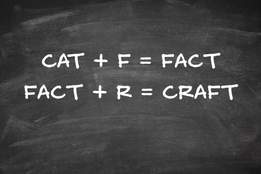Word of the Day
: July 29, 2025quibble
playWhat It Means
To quibble is to argue or complain about small, unimportant things. Quibble can also mean "to evade the point of an argument by making trivial or frivolous objections."
// Why are you quibbling over such a small amount of money?
// People ignored the main point of the speech and quibbled about its length.
quibble in Context
"In 'Louisa, Please Come Home,' one of Jackson's most deeply affecting stories, a girl on the cusp of womanhood runs away from home and disappears into a new life in a new city, where she finds a room in a boarding house and a job in a stationery store. Jackson's agent, who judged it 'a powerful and brilliant horror story,' quibbled with her decision to leave the character's motive unexplained, but it's clear that Louisa doesn't need a reason to run away. She wants simply to disappear …" — Ruth Franklin, introduction to The Lottery and Other Dark Tales by Shirley Jackson, 2025
Did You Know?
There's not much to quibble about when it comes to the origins of the verb quibble: it followed the noun quibble, meaning "an evasion of or shift from the point" and "a minor objection or criticism," into the language in the mid-17th century. That word is likely a diminutive of a now-obsolete noun quib, also referring to an evasion of or shift from the point. Quib, in turn, likely comes from a form of Latin qui, meaning "who," that is also a distant relation of our word who.
Name That Synonym
Unscramble the letters to create a synonym of the verb quibble: PINKTIC
VIEW THE ANSWER










